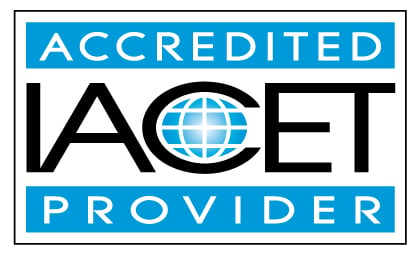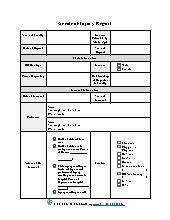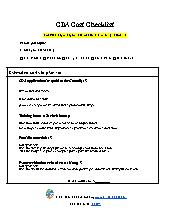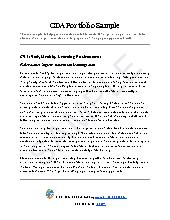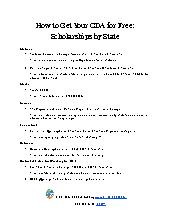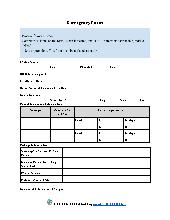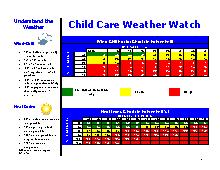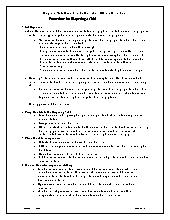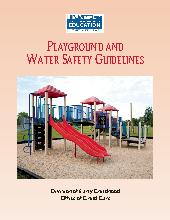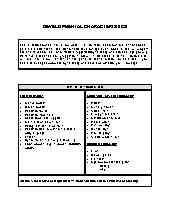CDA Bridge Bundle: Infant/Toddler
The CDA Bridge Bundle: Infant/Toddler is a self-paced online training for Maryland child care providers who already hold a 90-hour certification (including the 45-hour Growth & Development and 45-hour Curriculum trainings) and need the final 30 hours to complete the CDA training requirement.
What’s included in this bundle:
- 30 hours of online CDA training to complete your 120-hour requirement
- Professional Portfolio supports created by certified CDA PD Specialists
- A step-by-step portfolio instruction video
- Portfolio Review by ChildCareEd’s certified CDA PD Specialists
How the Portfolio Review works:
- After you finish the coursework, you must upload your Professional Portfolio documents as PDFs.
- Required documents include:
- Reflective Competency Statements for CS I–CS VI
- Your Professional Philosophy Statement
- Our PD Specialists will review each document and will either:
- Approve it, or
- Provide feedback and request revisions and resubmission
- Your CDA training certificate is issued only after:
- All coursework is complete and
- All portfolio documents are reviewed and accepted
Important additional requirements to earn the CDA Credential:
Completing this bundle fulfills the training portion, but the CDA Credential requires more. You must also:
- Have at least 480 hours of work experience with children ages 0–36 months in a center-based setting.
- Submit your Professional Portfolio digitally when you apply to the Council.
- Complete the CDA Exam.
- In most cases, complete a Verification Visit with a PD Specialist (some candidates may be awarded without one based on exam results).
Disclaimer:
ChildCareEd provides CDA training and portfolio support, but does not issue the CDA Credential. Completing this bundle (even with Portfolio Review) does not mean you have earned the CDA. The Council for Professional Recognition is the only organization that can award the CDA Credential after all of their requirements are met.
➡️ Learn more about credentialing steps and apply through the CDA Council’s official website.
By the end of this training, the learner will be able to:
- Identify and use community resources to support learning.
- Identify the differences between developmental screening and assessments.
- Recognize the importance of the use of developmental screenings.
- Demonstrate understanding of inclusionary practices for anxiety in the child care setting.
- Define and identify common signs and behaviors of children and youth with fetal alcohol syndrome.
- Define Adverse Childhood Experiences and identify its effects on child development
- Demonstrate understanding of strategies that utilize good time management practices for teachers and child care providers.
- Demonstrate understanding of using assessment and observations for short and long term goal development for ages birth to three.
- Recognize the importance of music in both child development and curriculum.
- Recognize the importance of knowing the stages of development.
- Describe the importance of learning centers in the early childhood education environment.
- Identify theorists of guidance and discipline
- Explain the possible causes and results of traumatic brain injury in infants and young children.
- Give examples of strategies teachers can use to communicate with parents regarding challenging behaviors.
- Identify Jean Piaget's stages of cognitive development.
- Define and identify common signs and behaviors of children and youth with developmental disabilities.
- Demonstrate understanding of inclusionary practices for cerebral palsy in the child care setting.
- Demonstrate understanding of inclusionary practices for developmental disabilities in the childcare setting.
- List community resources, support, and referrals for developmental disabilities.
- List community resources, supports, and referrals for cerebral palsy.
- Demonstrate an understanding of prenatal development and its impact on child development.
- Demonstrate understanding of inclusionary practices for autism spectrum disorder in the child care setting.
- Identify the basic musical milestones in children aged from birth to 5 years.
- Identify strategies to increase scientific inquiry in the infant and toddler classroom
- Define the term inclusion and how it relates to the child care environment and practice for all ages.
- Demonstrate an understanding of creating a successful block center by identifying the various types of blocks, describing an effective block center setup, and recognizing the various stages of block play.
- Define resilience and identify ways it helps young children overcome toxic stressors.
- Recognize informal and formal assessments to plan activities, individualize programs, and improve program quality.
- Identify elements of a successful infant/toddler classroom.
- List community resources, supports, and referrals for fetal alcohol syndrome.
- Demonstrate understanding of inclusionary practices for fetal alcohol syndrome in the childcare setting.
- Give examples of ways to collaborate with other professionals involved in the care and education of all children and youth.
- Give examples of developmentally appropriate musical activities for children.
- Identify factors that influence learning in a child's physical environment.
- List resources and the referral process for infants and toddlers with a suspected/diagnosed disability.
- Demonstrate understanding of how to assess and meet the needs of children with special needs.
- Demonstrate understanding of the components of a curriculum.
- Demonstrate an understanding of the impact of culture and diversity in relation to school readiness.
- Understand the relation between how material and equipment selection assist with lesson plan development and implementation.
- Recognize that children develop independence at different stages.
- Demonstrate an understanding of how chronic illness can affect development.
- Define and identify common signs and behaviors of children and youth with Autism Spectrum Disorder.
- List community resources, supports, and referrals for autism spectrum disorder.
- Define and identify common signs and behaviors of children and youth with anxiety.
- Define and identify common signs and behaviors of children and youth with cerebral palsy.
- Demonstrate an understanding of emergent curriculum.
- Demonstrate understanding of scaffolding as a method for individualized learning.
- Recognize the needs of individualized learning for infants and toddlers.
- Describe the stages of grief and the different ways children react to grief and stress.
- Identify assessment tools.
- Give examples of tools that record and communicate critical information to other staff and families.
- Identify the components of positive relationships with children, co-workers and families.
- Demonstrate an understanding of how to foster self-regulation skills in children.
- Recognize the importance of problem solving and conflict resolution strategies with community members and families
- List community resources, supports, and referrals for anxiety.
- Distinguish how to adapt arts and crafts for younger children and children with different abilities.
- Demonstrate an understanding of the information that should be communicated regularly with staff, parents, and the community
- Criteria to earn CEUs:
- Certificates are awarded when the following criteria have been met by the learner:
- Class has been paid in full
- All material has been reviewed
- All review questions and final test have been completed with a passing score of 80% or higher.
- Learning Assessment Method:
- Learners will be assessed through questions after every section is completed. Learners will not be
allowed to proceed to the next section of the training until all questions have been answered correctly.
Learners will be presented with a final test composed of true/false and multiple choice questions.
Upon successful completion of the training, learners will receive their certificate by email.
- Learning Methodology:
- Online material will be presented in the form of slides,
accompanied with speech. Videos will be used to demonstrate ideas and concepts. Charts and tables
will be used for illustration.
- Logistics/Required Technology:
- A stable internet connection is required for the completion of this course. Users are highly encouraged to take their online course on Google Chrome on either a laptop or desktop computer. Speakers and/or headphones are also required to hear speech.
- Payment Policy:
- Payments need to be made in full. No refunds will be issued after starting the class.
- Proprietary or conflict of interest disclosure:
- Unless otherwise stated in the course description none of H & H subject matter experts and editor has any conflict or proprietary interests related to the material they prepared in this course.
- Support Services:
- Please visit our contact us page
You are purchasing a session of an online training that includes online assessments. Your certificate will be emailed to you once you pass the final exam with a passing grade of 80%.
Your certificate will bear the name you provided to us when you signed up. For support and questions regarding the material presented in this class please contact us at info@childcareed.com. Please consult our frequently asked questions page for other questions or feel free to contact us.
ChildCareEd CDA Credential Training Portfolio Review – Required Documents
As part of our Portfolio Review process, you are required to upload the following documents for review by our team of certified CDA PD Specialists..
Please note:
- All documents must be uploaded as PDF files. Other formats will not be accepted.
- Each document you submit is a required component of your Professional Portfolio.
- Once submitted, our certified CDA PD Specialists will review your documents. They will either approve your submission or provide feedback requesting revisions and resubmission.
- After all documents have been reviewed and accepted, and you have successfully completed all coursework, you will receive your certificate of completion for your CDA training.
Required Reflective Competency Statements and Documents
- CS I: How you create a safe, healthy, and learning-friendly environment.
- CS II: How you promote physical and cognitive growth.
- CS III: How you help children build positive relationships and self-control.
- CS IV: How you engage and support families.
- CS V: How you keep the classroom organized and support children’s learning.
- CS VI: Your professional growth and advocacy.
- Professional Philosophy Statement
Hours breakdown
10.5 CD/13.5 SN/3 PRO/3 CURTopics / Categories
Group AdminInfant/ Toddler Educators
Professionalism
Child Development
Not Applicable
Basic
Curriculum and Environment
Professionalism
Child development
CDA
Special Needs
- How to Become a Pre-School Teacher in a Child Care Center in Maryland
- UNITED STATES OF AMERICA - Florida
- UNITED STATES OF AMERICA - Maryland
- UNITED STATES OF AMERICA - Alaska
- Child Development Associate (CDA) Fund for Maryland
- Using your 90-hour certification to complete your CDA.
- Free CDA for those who already have their 90-hours
- Empowering Maryland's Early Childhood Educators: The Maryland CDA Training Initiative
- How to get a CDA for free
- Bridging the Gap between the 90 hour and CDA Credential for Maryland providers
- Interested in the Maryland CDA Training Initiative?
- CDA Training Initiative has been extended!!
- Nurturing Tiny Minds: The Path to a CDA Infant/Toddler Credential
- The Importance of Infant and Toddler CDA Certification in Early Childhood Education
- Infant-Toddler CDA Certification: Your Key to Specializing in Early Childhood Care
- Building Your CDA Portfolio: Showcasing Your Expertise and Passion
- How Can Texas Child Care Providers Save Big on Annual Training?
- 🎢 Ready to Train with a Nevada Twist? Your Guide to Must-Have Training Bundles for Early Educators!
- Step Into Your Future: Why the CDA Bridge Bundle Could Be Just for You!

